Data Ecosystems: Fostering Cross-Border Collaboration for Disaster Risk Reduction
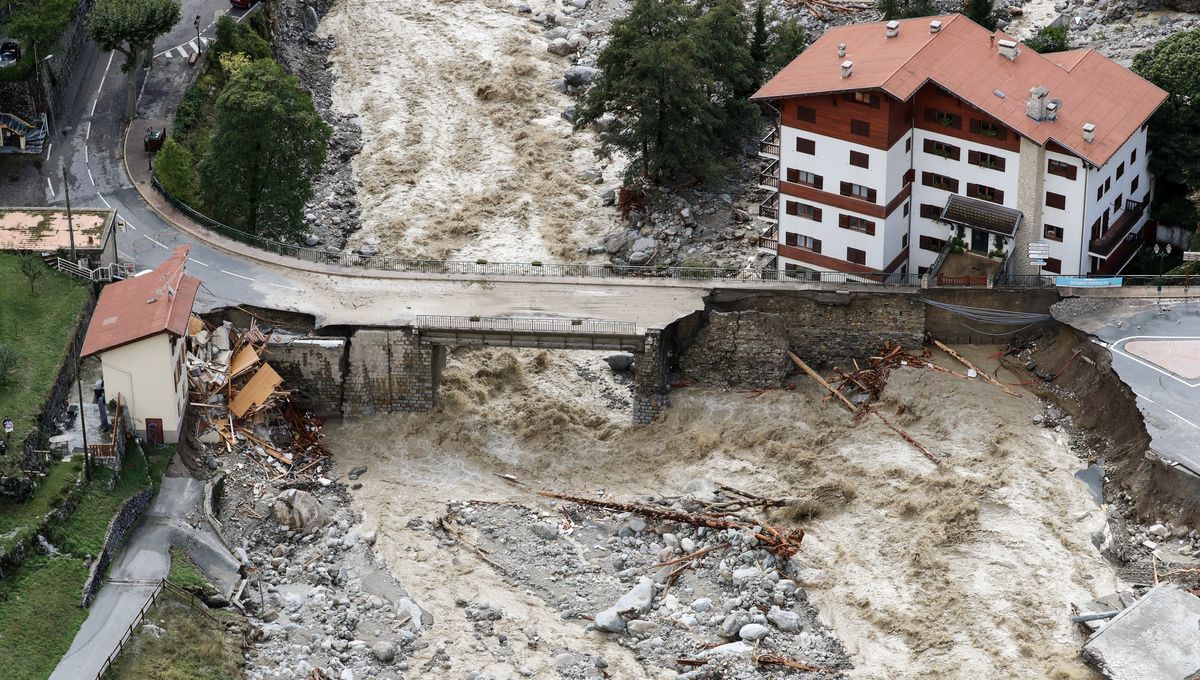
By Anouck Adrot (Université Paris-Dauphine PSL) and Mercedes Aguerre (Croix Rouge Française)
Cross-border data sharing strengthens disaster preparedness through increased collaboration, optimized resource use, advanced research, and addressing regional challenges. In this context, data ecosystems have emerged as valuable tools to foster information exchange within organizational networks in disaster risk management.
This blog, based on recent research from Paris Dauphine University and the French Red Cross, examines how data ecosystems can improve cross-border disaster preparedness. It explores relevant data ecosystem applications, barriers to implementation, and potential solutions for more effective systems supporting disaster risk reduction.
Data ecosystems as a driver of cross-border cooperation
Our recently published research study aims to better understand how a data ecosystem can support cross-border organizations in reducing disaster risk. Today, data ecosystems represent valuable tools to produce, share and integrate information between disaster management organizations in both development and emergency contexts. A data ecosystem is a collaborative network of organizations and actors that interact to produce, share, and consume data sets and services. This collective effort involves various entities, including private companies, communities of practice, nonprofits and international agencies working together to share critical data sets and services.
A relevant example of a humanitarian data ecosystem is the Humanitarian OpenStreetMap Team (HOT). Created via OpenStreetMap, HOT aims to enhance accessibility to diverse humanitarian data types. It serves as a platform bringing together different organizations to leverage data sharing and analysis opportunities. Some of the data sets on HOT originate from UN bodies and the Red Cross network. Its governance includes corporate entities like Google, the World Bank, as well as academic institutions.
Data ecosystems offer critical benefits for disaster management by facilitating cross-organizational information exchange, collaborative tracking of population movements, and risk mitigation around disasters like floods and droughts. In addition to these tangible advantages, they strengthen social connections through increased networking and resource sharing within the humanitarian sector.
Our literature review finds that data ecosystems can significantly bolster disaster risk reduction across borders. First, inter-organizational networks and central data hubs improve situational awareness. Second, data ecosystems promote the development of shared protocols, creating synergies around disaster preparedness. Finally, a collaborative data ecosystem serves as a unifying goal for cross-border cooperation, overcoming conflicts of interest and sustaining local commitment. This demonstrates the strong potential of data ecosystems to drive more effective cross-border cooperation.
DRR data ecosystem in practice
Through a retrospective analysis of data exchanges during the 2020 Roya Valley floods, our study employed a visioning methodology to explore how a data ecosystem can help mitigate risks in practice. Our goal was to generate practical knowledge that could help the emergency response community better leverage data ecosystems for current and future disaster preparation and relief efforts.
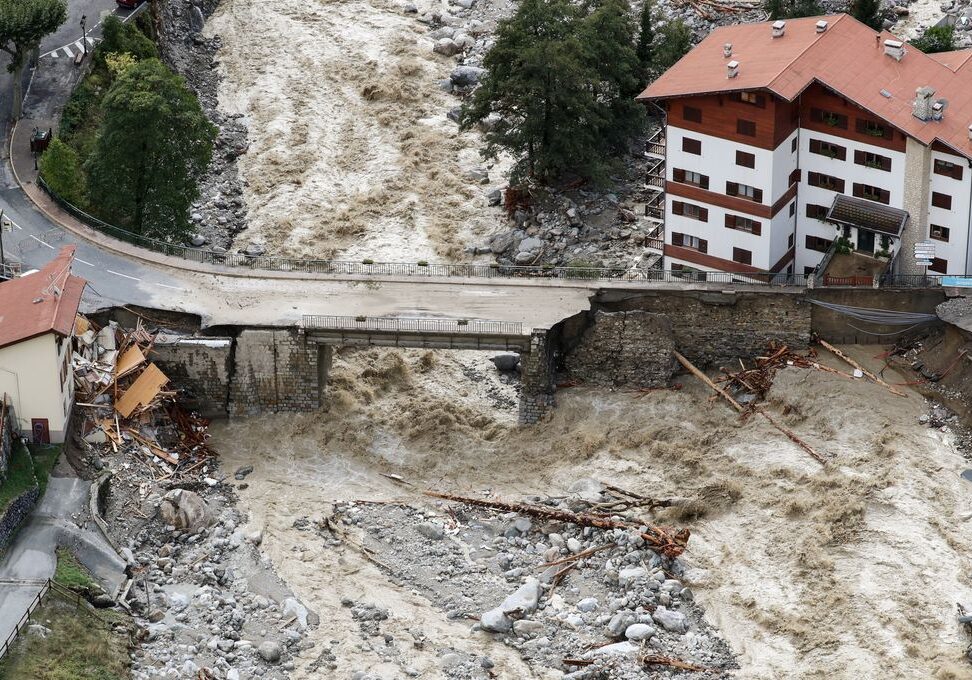
The storm Alex took place between 2 and 7 October 2020 in the valleys of the Vésubie, Roya and Tinée rivers in south-eastern France, northern Italy and central Europe. Between 250 mm and 500 mm of rain fall locally in 12 hours leaving at least:
- 19 dead (8 in Italy, 8 in France, 1 in Austria, Poland and Czech Republic) and 12 missing (11 in France a 1 in Italy)
- Hundreds of homes, along with bridges and roads, destroyed.
- Outages of power, telecommunication and water supplies occurred due to fallen trees.
- Rail service was cut off.
Based on insights from the Roya Valley response, we envisioned a fictitious cross-border data ecosystem, represented in Figure 1. This ecosystem would enable key disaster response actors, including core stakeholders and peripheral supporting organizations, to collaborate around shared data and services. A nonprofit entity we called “Novadata” governs ecosystem operations, under the supervision of its founders. Novadata drives the production of data services based on public and semi-public data. The vision methodology explains how the governance of the ecosystem can regulate the challenges identified in the literature and in empirical data.
Novadata’s mission includes designing processes to include organizations in the ecosystem and define their data rights. It is also responsible for keeping the data sets and services consistent over time through the creation of glossaries and processes to update the data, as well as monitoring the flow of data entered and shared between the various actors involved in the ecosystem.

This governance approach addresses the known drivers and challenges in building a cross-border data ecosystem in the emergency preparedness field. Firstly, not all the organizations in the ecosystem would share the same informational needs. Secondly, these informational needs vary over time. To address this, Novadata structures its services into Task Forces - each focusing on a specific use case shared by ecosystem partners. By combining and analyzing relevant underutilized semi-public data sources, the Task Forces can produce tailored services including:
- The production and normalization of data sets
- The production and access to outputs from data sets (including visuals, graphs, maps, etc.)
- The training and brainstorming sessions
- The documentation of services and how to use them. The task force also aims at promoting data culture to address heterogeneous levels of expertise and familiarity with data across organizations.
Navigating Challenges of Cross-Border Data Ecosystems
Implementing cross-border data ecosystems for disaster risk reduction (DRR) comes with inherent complexities spanning technological, organizational and governance spheres. Key challenges include ensuring data quality, establishing interoperability standards, addressing privacy and security issues, defining governance structures and overcoming cultural resistance.
Moreover, data ecosystems for cross-border DRR imply additional uncertainties. They require various areas of expertise, including server administration, programming, data analysis, visualization, safety protocols and more. Since one organization may not have all this capability, ecosystem expansion would be needed to incorporate new experts and companies – actors potentially unfamiliar with the reality of cross-border DRR.
The premise of data ecosystems relies on a willingness to share data openly, which organizations may resist due to commercial sensitivities, differing priorities or general secrecy. This highlights how partners may not share common interests regarding data. Data ecosystems also require complex governance planning to fund and maintain data services, literacy and sets. Finally, cross border cooperation is influenced by distinct cultural, political and economic realities on each side, shaping priorities. This can create divergent interests and potential conflicts despite the shared goal of cross-border DRR.
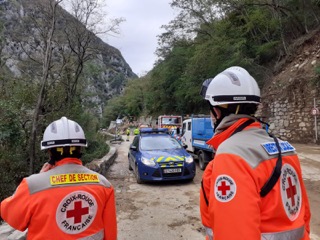
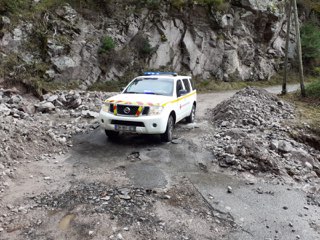
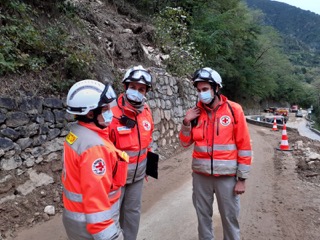
In essence, data ecosystems represent a promising but uncertain avenue to support disaster risk reduction (DRR) across borders. While offering potential benefits, cross-border DRR data ecosystems surface a set of inherent social, technical and organizational uncertainties that warrant consideration for effective implementation.
Before committing to cross-border data ecosystems, organizations should seek to deeply understand them from a socio-technical perspective. Tackling these challenges requires a comprehensive approach that involves technological solutions, robust governance frameworks and a commitment to ethical practices. It involves fostering a culture of collaboration, transparency and continuous improvement within the data ecosystem.
The role of Research in Cross-Border Data Ecosystems
This research aims to make two key contributions. First, it seeks to advance knowledge on data ecosystems in cross-border organizational contexts. Despite growing research on data ecosystems in general, there remains limited insight into the unique dynamics of sharing data across borders. This study provides an initial framework for conceptualizing and examining potential future cross-border data ecosystems.
The second contribution stems from the practical application of the visioning method. By facilitating collaborative, forward-thinking conversations, this research helped organizations reflect on the inherent opportunities and risks of cross-border data sharing. It is hoped that by leveraging these scientific concepts and approaches, organizations can maximize the value derived from data exchange across borders.
Ultimately, research plays an instrumental role in enabling effective disaster preparedness and response through cross-border data ecosystems. It lays the groundwork for evidence-based practices, enhanced cooperation, and continuous improvement. Moreover, research is essential for realizing the full potential of data sharing, offering vital perspectives to inform decision-making, optimize resource allocation, and strengthen collective action. Investing in research represents a strategic priority for developing more resilient transnational communities.
